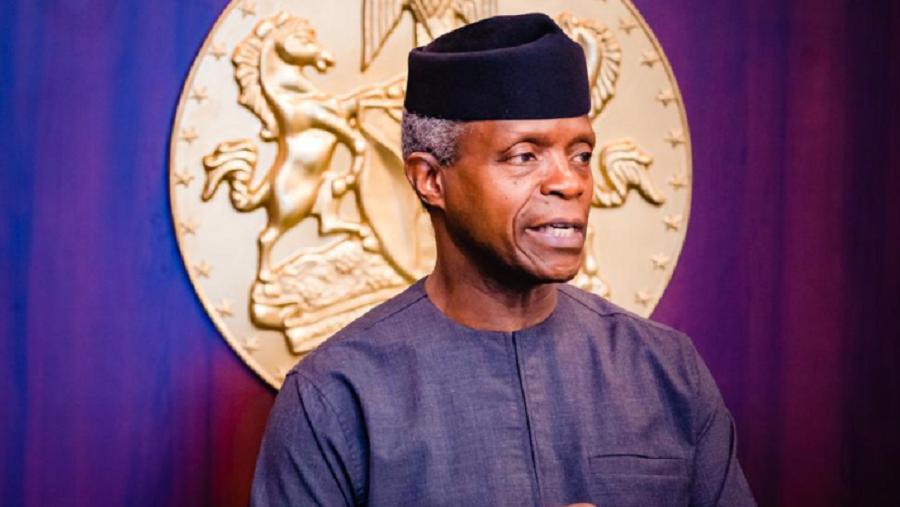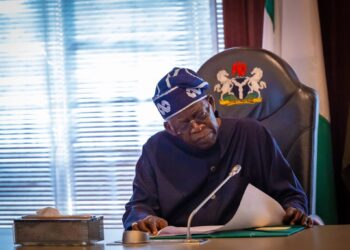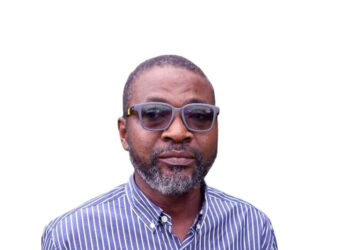Nigeria’s Vice President, Prof. Yemi Osinbajo, said Africa receives $29.5 billion in climate finance annually as opposed to the $277 billion it needs for climate financing.
He stated this during the unveiling of the 4D Digital Green Industrial Corridor and the launch of the African Union Transition Fuels Oversight and Regulatory Management Accelerator (TRANSFORMA) on Wednesday, November 9, 2022.
TRANSFORMA is a 4D initiative to fast-track the Digital Green Industrial Corridor among the African Continental Free Trade Area (AfCFTA) member states.
The backstory: During the 41st Ordinary Session of the Executive Council in July 2022, the African Union adopted a common position, which stipulates that Africa will continue to deploy all forms of its abundant energy resources, including renewable and non-renewable energy, to address its energy demands.
According to the African Union, natural gas, green and low-carbon hydrogen, and nuclear energy will play a crucial role in expanding modern energy access in the short to medium term, while enhancing the uptake of renewables in the long term.
A pan-African platform: While giving his speech at the TRANSFORMA unveiling, Osinbajo noted that innovations like the 4D Digital Green Corridor and TRANSFORMA create ready platforms for pan-African collaboration, which is critical to finance and resource mobilization on the continent. Osinbajo said:
- “TRANSFORMA is indeed a welcome development, and we recognize the value that the transcontinental policy and implementation vehicle offers in mobilizing larger investments, improving shared learning, and producing larger economies of scale for individual nations like Nigeria and also for the entire continent.
- “Reports from the World Bank estimate that the AfCFTA could raise income on the continent by over $450 billion by 2035 and lift 50 million people out of extreme poverty. Importantly, the continent could see foreign direct investment increase by between 111% and 159% under the AfCFTA.
- “Joint advocacy on principles for a just transition is getting stronger, our home-grown solutions must do the same. Our case as a continent, particularly with respect to the just ‘energy transition’ is cogent and irrefutable. We cannot accept a global energy transition that leaves millions of our people in the dark, exposed to harmful pollutants due to unclean cooking, or poor and unemployed because of limited industrial activity.”
A just energy transition: Data from the 2022 African Economic Outlook released by the African Development Bank (AfDB) Group states that about 140 million more people were without access to electricity in 2019 than in 1990.
- About 1.75 million public health centres and schools in Africa lack reliable electricity supply, while one healthcare facility in four lacks electricity and three in four lack reliable power.
- 80% of businesses in Africa (except in North Africa and South Africa) experience outages, compared with 66% in South Asia and 38% in Europe.
- Africa contributed little to the historical emissions buildup but could be denied the carbon space to expand its economy. And true climate justice suggests that Africa is owed almost 10 times as much as the global climate finance that it received between 2016 and 2019.
- According to the AfDB report, between $1.3 trillion and $1.6 trillion, averaging $1.4 trillion, will be needed over 2020–30 to implement Africa’s climate action commitments and Nationally Determined Contributions (NDCs).
- After historical and future carbon emission shares are accounted for, total climate finance due to Africa is estimated at $4.76–$4.84 trillion in 2022–50, representing annual flows of $163.4–$173 billion.
Natural gas as a transition fuel: During his speech, Osinbajo also reiterated the importance of natural gas development in Africa. He said that Africa deserves the policy flexibility and support to leverage natural gas for the speedy resolution of the continent’s energy needs. Osinbajo said:
- “Natural gas has a key role to play in Africa as a transition fuel to facilitate the delivery of electricity access and clean cooking solutions, the scaleup and integration of renewable energy into the energy mix and the switch from dirtier fuels like diesel and petrol.
- “It has been estimated that economic activities stimulated by the domestic utilization of Nigeria’s recoverable gas reserves could support 6.5 million full-time equivalent jobs and produce $18.3 billion in gross value addition annually, with over $5 billion of this amount directly from capturing the economic value of natural gas liquids (NGLs).”
Consequences of under-development: If Africa decides to focus on adopting the energy transition strategies of developed countries, it will remain underdeveloped. Some of the impacts of keeping African countries the way they are include a continuous lack of industrial capacity, loss of jobs, and the inability to secure more jobs through industrialization. African countries need to establish energy transition plans that are reflective of their economy and future growth projections.





















